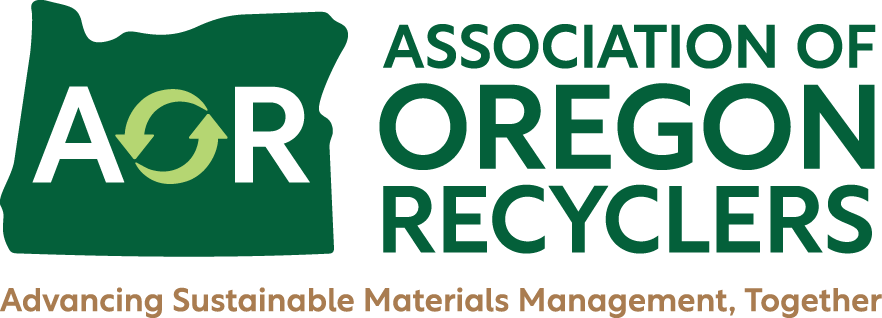New Report Shows Massachusetts Bottle Bill Law Creates Nearly 1,500 Jobs and Contributes Up to $151 Million to State GDP
Press Release from the Container Recycling Institute
Analysis From Container Recycling Institute Details Significant Employment and Economic Impacts of the Commonwealth’s Current Beverage Container Deposit Return System
As the Massachusetts Legislature prepares to hold hearings on June 13 on bills to repeal or otherwise revise the Commonwealth’s Beverage Container Recovery Law (“Bottle Bill”), a new report issued by the nonprofit Container Recycling Institute (CRI) offers insight into the value of the current Bottle Bill – which provides refunds to consumers who return empty beverage containers to recycling locations – due to the considerable employment and economic benefits it provides.
The report, titled “Massachusetts Container Deposit Return System: 2016 Employment and Economic Impacts in the Commonwealth,” was prepared for CRI by Cambridge, Mass.-based Industrial Economics, Inc. using state data, in-depth information from key market actors, and two supplemental modeling analyses. Key findings include:
Market Volume: More than 1.2 billion containers were recovered in 2015, with a commodity value of roughly $19 million. A total of $62.3 million was returned directly to consumers at redemption locations.
Direct Employment: The market currently encompasses 1,480 jobs for collecting, transporting and processing bottles and cans into high-quality secondary materials; and for manufacturing new glass bottles from recycled glass.

(You can download the infographic with the report)
State GDP Contribution: The total value to the economy ranges from $85 million to $151 million, including direct, indirect and induced effects.
Municipality Savings: By redirecting containers from the municipal waste stream, the Bottle Bill saves cities and towns likely on the order of $20 million annually – an expense that they would otherwise incur to collect, recycle and dispose of these containers.
A Key to Commercial Viability
“The Ardagh Group glass manufacturing facility in Milford, Mass., receives unparalleled economic and operational benefits as a result of the Massachusetts container deposit law,” said John Riordan, president and CEO of Ardagh Group, Glass – North America.
He added, “Our Milford facility averages 85%-90% recycled glass in every bottle it manufactures, which not only reduces the use of raw materials, but also significantly lowers the level of energy consumed. Based on the amount of recycled glass Ardagh can purchase and utilize at our other U.S. manufacturing facilities that are not in deposit law regions, we know that a single stream format cannot effectively deliver the quantity and quality of recycled glass we need for our operations.”
“We cannot take any steps that drive companies and jobs to other states,” said State Sen. Ryan Fattman. “The Ardagh Group facility, located in my district in Milford, provides approximately 240 well-paying glass beverage container manufacturing jobs in this area. Without the Commonwealth’s Bottle Bill, the operations of Ardagh might cease being commercially viable. We need to keep this and other recycling industry companies and jobs right here in Massachusetts.”
Effects of a “No Bottle Bill” Scenario
The report also addresses the impacts of a Bottle Bill repeal in Massachusetts. Based on results from a customized version of CRI’s Measuring the Impact of Recycling on Jobs Calculator (MIRJCalc) and input from Massachusetts recycling companies, the report indicates that in the absence of a Bottle Bill, most (if not all) of the 1,480 jobs directly associated with managing containers would likely be eliminated or relocated, or workers would have their hours reduced.
Remaining haulers, processors and material recovery facilities (MRFs) also would face increased costs and reduced revenues from the drop in the quality of the materials collected from curbside recycling programs. Glass bottles that are mixed with other recyclables are often contaminated with other materials, and this lower-quality glass is worth much less than sorted glass containers.
CRI President Susan Collins said the report shows that “overall, the job creation and other financial benefits enjoyed under the Bottle Bill in Massachusetts are considerable, and an alternative system would appear to be costly, with no significant or obvious advantages. A repeal of the Bottle Bill clearly would set Massachusetts back in terms of employment and the economy.”
Those interested in more details on the Massachusetts report, plus the opportunity to ask questions of Collins and officials from Industrial Economics, Inc., are invited to sign up for CRI’s webcast on June 14, 2017 at 11 a.m. Pacific time. For more information and registration options, visit our website.
The nonprofit Container Recycling Institute is a leading authority on the economic and environmental impacts of used beverage containers and other consumer product packaging. Its mission is to make North America a global model for the collection and quality recycling of packaging materials.
###
MEDIA CONTACT: Susan V. Collins, CRI President, (310) 559-7451, scollins@container-recycling.org


